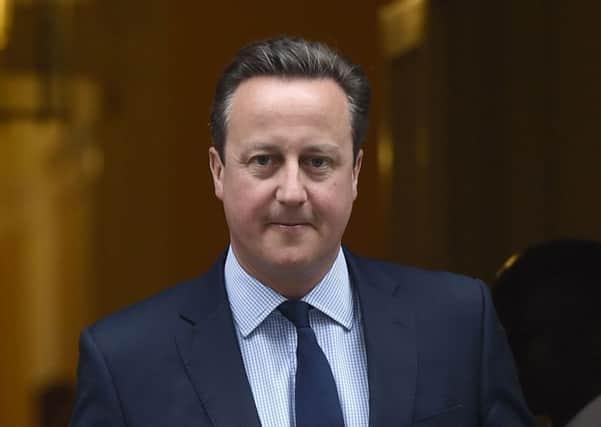YP Comment: PM must make positive EU case


Without Europe, South Yorkshire – and other parts of the county – would not have been entitled to the state aid which has been the catalyst for the region’s regeneration following the demise of the traditional industries.
It’s also too simplistic to say that this would have happened if Britain had not joined the EEC in the first place – successive governments would simply not have been able to stump up the lump sums that were required to transform redundant coalfields and so on.
Advertisement
Hide AdAdvertisement
Hide AdYet it is also disingenuous of David Cameron to claim that a Brexit vote on June 23 will compromise this work because Britain will no longer be able to call upon the £16bn that the European Investment Bank has allocated this country over the past three years.
The Prime Minister should be experienced enough to realise, by now, that one of the main arguments of EU opponents, whether they be Cabinet ministers or plain-speaking correspondents to this newspaper, is the view that this country pays far more into the European Union’s coffers than it gets in return.
It is a point articulated by Conservative peer Michael Dobbs on the opposite page. An author who is no stranger to political intrigue and drama thanks to his fictional premier Francis Urquhart in the House of Cards series, he writes: “If we weren’t members of the EU, would you vote to join what it has become? No, me neither.”
This is precisely the type of question that Mr Cameron needs to answer if he is to win – and it will only happen if the Prime Minister starts accentuating the positives of Britain’s EU membership rather than the negatives.
What a waste
Advertisement
Hide AdAdvertisement
Hide AdWHEN INCENTIVES were announced by Defra to encourage households to recycle more, the Government hoped that such a scheme would lead to a “sea change” in attitudes.
If only. Despite £1.4m of public money being spent on rewards, the project had a negligible impact because Government officials patently failed to appreciate that most people are good citizens. They take litter home and are conscientious when it comes to recycling.
In this regard, Defra – and others – are preaching to the converted. The challenge is reaching out to the irresponsible minority who drop rubbish and remain ignorant about recycling’s importance. This is not new. Politicians and policy-makers have wrestled with the issue of responsibility for decades – Margaret Thatcher spoke about giving residents the power to take councils to court if they did not keep the streets clean when she opened the Tidy Britain Group’s HQ in 1990.
Mindful of the cost of collecting rubbish, she did warn: “If we want these costs diminished, we will, as individuals, as schools, as groups, as companies, have to see that we clean up our own litter so that its not a task for the local authority.”
Advertisement
Hide AdAdvertisement
Hide AdRelevant then, these remarks are even more pertinent today – and show that the answer best rests with communities taking responsibilty rather than politicians trying to change attitudes by gimmick.
If more civic-minded residents spent a few minutes each week picking up litter, others might become more aware of their obligations to the environment and begin, as a result of this peer pressure, to recycle household waste in increased quantities to do so. It shouldn’t require Ministerial interference.
The NHS at its best
THE great sadness about the National Health Service becoming a political football, most recently with the stand-off over junior doctors, is that it detracts from the amazing skill of the medical profession.
It’s why The Yorkshire Post, and other titles, regularly publish letters and testimonials from grateful patients. It is the public’s way of saying thank you, two precious words that mean the world to the doctors and nurses concerned, and it is important that this gratitude is put on the record where appropriate.
Advertisement
Hide AdAdvertisement
Hide AdFew, however, are as heartfelt as the letter from Ian Thomas on this page in which he cites his debt to all those who came to the aid of his wife Debbie when she suffered a brain aneurysm while driving her car. She would not be back at work without prompt treatment – and lifesaving surgery.
A story indicative of NHS at its very best, it is also a powerful reminder about the importance of never taking this organisation for granted.